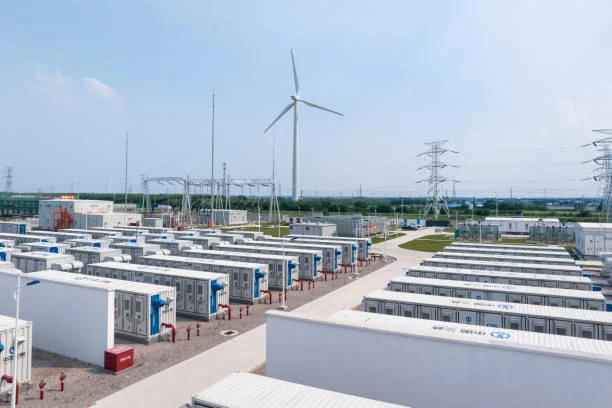Innovations in Energy Storage: Exploring the Role of Liquid Cooling in Sustainable Energy Solutions
As the world moves toward more sustainable energy sources, innovative solutions are required to optimize energy storage systems for long-term reliability and efficiency. Among the leading innovations is liquid cooling technology, a game-changer for modern energy storage systems. In this article, we will explore how liquid cooling is revolutionizing energy storage, with a particular focus on the contributions of industry leader Huijue Group.
1. The Growing Need for Advanced Energy Storage Solutions
As renewable energy technologies like solar and wind become more mainstream, the ability to store energy efficiently is essential for ensuring grid stability and reliability. Traditional energy storage systems have limits when it comes to scalability and performance, particularly in terms of heat management.
Energy storage systems rely on batteries to store energy for later use, and managing the heat generated during the charging and discharging processes is critical to maintaining performance and extending battery life. As more energy is stored, the greater the risk of overheating, which can reduce efficiency and even cause system failure.
2. How Liquid Cooling Enhances Energy Storage Efficiency
In traditional energy storage systems, air cooling has been the primary method for heat dissipation. However, air cooling is often insufficient for larger or more complex systems. This is where liquid cooling comes into play, offering a far more efficient way to manage heat in high-density energy storage solutions.
Improved Heat Dissipation: Liquid cooling systems can absorb and transfer heat away from batteries more effectively than air-based systems. This keeps the system at an optimal operating temperature, improving efficiency and performance.
Longer Battery Life: Overheating is one of the major factors that degrade battery life. By keeping temperatures stable, liquid cooling helps extend the lifespan of the batteries, reducing the frequency of replacements and lowering maintenance costs.
Higher Energy Density: With effective heat management, energy storage systems can operate at higher capacities without the risk of overheating. This means that more energy can be stored in the same space, maximizing efficiency.
3. Huijue Group: Leading the Way in Liquid-Cooled Energy Storage
One company at the forefront of liquid cooling technology for energy storage systems is the Huijue Group. With years of expertise in developing innovative energy solutions, Huijue Group is paving the way for more efficient, reliable, and scalable energy storage systems. Their advanced energy storage systems incorporate liquid cooling to ensure long-term performance, safety, and cost-effectiveness.
Customized Solutions: Huijue Group offers tailored solutions for various applications, from residential energy storage to large-scale industrial systems. Their liquid-cooled systems are designed to meet the unique needs of each customer, ensuring optimal performance regardless of the environment.
Safety and Reliability: Huijue Group’s energy storage solutions are designed with safety as a top priority. Their systems incorporate state-of-the-art safety measures, including advanced Battery Management Systems (BMS), to monitor and protect against issues like overcharging and overheating.
Global Reach: With projects spanning across different continents, Huijue Group has established itself as a global leader in the energy storage industry. Their liquid-cooled storage systems are being adopted in regions with both developed and developing energy infrastructures.
4. The Future of Liquid Cooling in Energy Storage
The future of energy storage is likely to see liquid cooling becoming more prevalent, especially as the demand for high-density, high-performance storage systems grows. As energy grids around the world continue to evolve and expand, the need for scalable and efficient storage solutions will only increase.
Innovations in liquid cooling, coupled with the latest advancements in storage battery technology and Battery Management Systems (BMS), will enable energy storage systems to operate more efficiently, safely, and reliably, paving the way for a more sustainable energy future.

